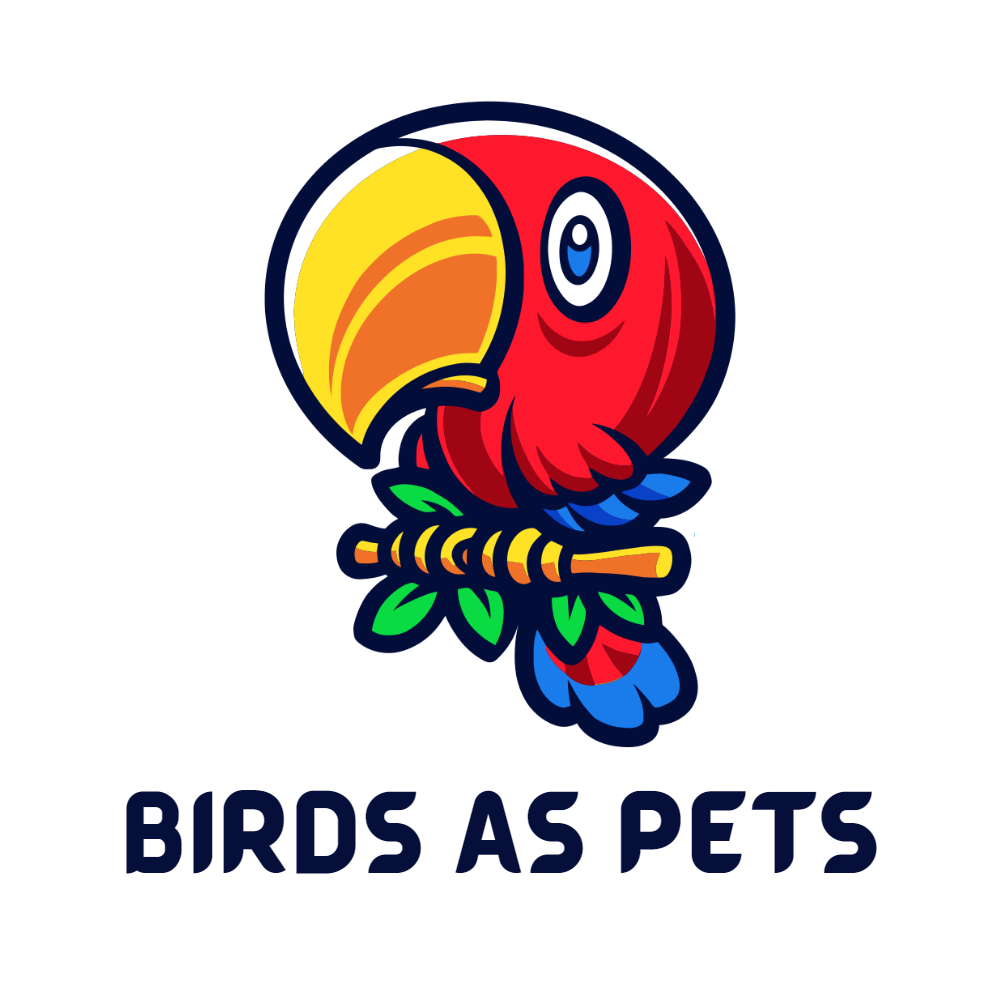Are you considering keeping a Lory as a pet? These colorful, playful, and intelligent birds can make wonderful companions for the right person. In this article, we’ll cover everything you need to know about Lories as pets, from their natural habitat to their care requirements and potential challenges.
Quick Reference Table: Lories Facts
| Fact | Details |
|---|---|
| Size | 10 to 12 inches (25 to 30 cm) depending on species |
| Weight | 100 to 300 grams depending on species |
| Lifespan | Up to 20 years in captivity with proper care |
| Temperament | Intelligent, playful, and social |
| Colors | Vibrant colors ranging from reds, blues, greens, and yellows |
| Diet | Mainly nectar, fruits, and vegetables |
Where Do Wild Lories Live?
Wild Lories can be found in various regions throughout Southeast Asia, Australia, and the Pacific Islands. They inhabit tropical and subtropical rainforests, where they feed primarily on nectar, fruits, and some insects. Their colorful plumage and acrobatic flight patterns make them a beautiful sight to behold in their natural environment.
Lories Lifespan: How Long Do They Live as Pets?
With proper care, Lories can live up to 20 years as pets. To ensure a long and healthy life for your Lory, provide a balanced diet, a clean and spacious living environment, and regular veterinary check-ups. Keep in mind that owning a Lory is a long-term commitment, as their lifespans can span multiple decades.
Are Lories Good Pets?
Lories can make excellent pets for the right person. They’re intelligent, social, and affectionate birds that can form strong bonds with their human caregivers. Their playful nature and vibrant colors make them a joy to interact with. However, they do require specialized care, including a unique diet and diligent housekeeping due to their messy eating habits.
Are Lories as Pets Good for Beginners?
Lories may not be the best choice for beginners due to their specialized dietary and care requirements. First-time bird owners might find it challenging to manage their unique needs, such as providing a nectar-based diet and cleaning up after their messy eating habits. However, for those willing to put in the time and effort, Lories can be rewarding pets.
Are Lories Easy to Care For?
Caring for Lories can be more demanding compared to other pet birds due to their unique diet and messy eating habits. Their nectar-based diet requires regular preparation and clean-up, and their enclosures need frequent cleaning to prevent bacterial growth. However, if you’re prepared to put in the effort, Lories can be delightful and engaging pets.
Lories Pros and Cons
| Pros | Cons |
|---|---|
| Intelligent and playful | Specialized diet |
| Social and affectionate | Messy eating habits |
| Vibrant colors | Can be noisy |
| Strong bonding with owners | Long-term commitment |
Lories Price and Costs
The initial cost of purchasing a Lory can range from $300 to $1,000 depending on the species and breeder. Additional costs include a spacious cage, toys, perches, and feeding supplies. Ongoing expenses include a specialized diet, regular veterinary check-ups, and replacement toys and perches as needed.
Where to Buy Lories
When looking to buy a Lory, seek out reputable breeders or avian rescue organizations. Do your research to ensure that you’re supporting ethical breeding practices and that the bird you’re considering is healthy and well-socialized. Avoid purchasing Lories from pet stores, as they may not have been bred or raised under ideal conditions.
Caring for Lories
Lories Food
A Lory’s diet should primarily consist of nectar, fruits, and vegetables. Commercially available nectar mixes can be used, or you can make your own using a mix of baby rice cereal, honey, and water. Fresh fruits and vegetables should also be provided daily. Occasionally, small amounts of seeds, pellets, and insects can be offered as treats.
Health and Common Issues
With proper care, Lories can be relatively healthy pets. However, they can be prone to certain health issues, including bacterial and fungal infections, obesity, and vitamin deficiencies. Regular veterinary check-ups and a well-balanced diet can help prevent these issues.
Signs of Healthy Lories vs. Sick Lories
| Healthy Lory | Sick Lory |
|---|---|
| Bright, clear eyes | Cloudy or swollen eyes |
| Glossy, vibrant feathers | Dull, ruffled, or plucked feathers |
| Active and alert | Lethargic or unresponsive |
| Normal droppings | Abnormal droppings (diarrhea, discolored, etc.) |
| Good appetite | Loss of appetite |
Remember that owning a Lory requires a long-term commitment and specialized care. If you’re prepared to provide the proper diet, living conditions, and attention that these beautiful birds need, you’ll be rewarded with a playful and affectionate companion for years to come.
Lories Pet Insurance
Investing in pet insurance for your Lory can help cover unexpected veterinary expenses, ensuring that your feathered friend receives the best care possible. Policies for birds typically cover accidents, illnesses, and routine check-ups. Make sure to research and compare pet insurance providers to find a plan that suits your needs and budget.
Personality and Behavior
Lories are known for their playful, energetic, and curious personalities. They love to explore their environment and engage in activities that challenge their intelligence. They’re also quite social and enjoy interacting with their human caregivers, which can lead to strong bonds and even cuddles. Keep in mind that every Lory is an individual, and personality traits can vary between birds and species.
Are Lories Social?
Yes, Lories are social creatures that thrive on interaction with their human caregivers and other birds. They enjoy playtime, training sessions, and general companionship. It’s important to provide your Lory with plenty of socialization and mental stimulation to keep them happy and healthy. If your Lory is the only bird in the household, consider spending quality time with them daily to fulfill their social needs.
Speech and Noise of Lories
Lories are capable of mimicking human speech and various sounds, although their talking ability is generally not as advanced as some other parrot species. They tend to be vocal birds, producing a range of natural calls and noises, which can include chattering, whistles, and even screeches. Some individuals may be noisier than others, and noise levels can vary between species.
Similar Species to Lories
There are several species of birds that share similar traits with Lories, including the closely related Lorikeets. Other parrot species with comparable size, color, and behavior include Eclectus Parrots, Pionus Parrots, and Caiques. When considering a bird as a pet, research each species’ specific care requirements and traits to ensure they’re a good fit for your lifestyle.
Can Lories Live With Other Pets and Birds?
Lories can coexist with other pets and birds if introduced properly and supervised closely. However, compatibility depends on factors such as individual personalities, species, and the size of the living space. It’s essential to provide separate cages or enclosures for each bird and monitor their interactions closely to ensure everyone gets along safely.
Are Lories Legal to Have as Pets?
In most countries and regions, Lories are legal to own as pets. However, it’s crucial to check your local laws and regulations before acquiring a Lory, as rules can vary between countries, states, or even cities. Additionally, some Lory species are protected and may require special permits to keep as pets.
Additional Resources
- Lorikeet Lovers Facebook Group
- Birds-Online.de: Lories and Lorikeets
- For the Love of Birds Forum
- Avian and Exotic Animal Care: Lories and Lorikeets
FAQ for Lories as Pets
Do Lories talk?
While Lories can mimic some human speech and sounds, their talking abilities are generally not as advanced as those of some other parrot species.
Are Lories suitable for families with young kids?
Lories can be a good fit for families with young kids, provided that the children are taught how to interact with the birds safely and respectfully. Adult supervision is essential during interactions to ensure the safety and well-being of both the Lory and the child.
Can Lories be trained?
Yes, Lories are intelligent birds that can be trained to perform various tricks and behaviors. Positive reinforcement training methods, such as clicker training, can be effective in teaching your Lory new skills.
How do I know what gender Lories are?
In most Lory species, males and females have similar physical appearances, making it difficult to determine their sex visually. To accurately determine your Lory’s gender, DNA testing or surgical sexing performed by a qualified avian veterinarian is recommended.
How much space doLories need?
Lories require a spacious cage or aviary that provides ample room for them to move around, stretch their wings, and engage in play. A minimum cage size of 24 inches wide, 24 inches deep, and 36 inches tall is recommended, although larger is always better. Additionally, provide perches, toys, and enrichment items to keep your Lory mentally and physically stimulated.

